Colonel Ivan Pavlenko: The war will end, we will win. But the war in cyberspace will never end
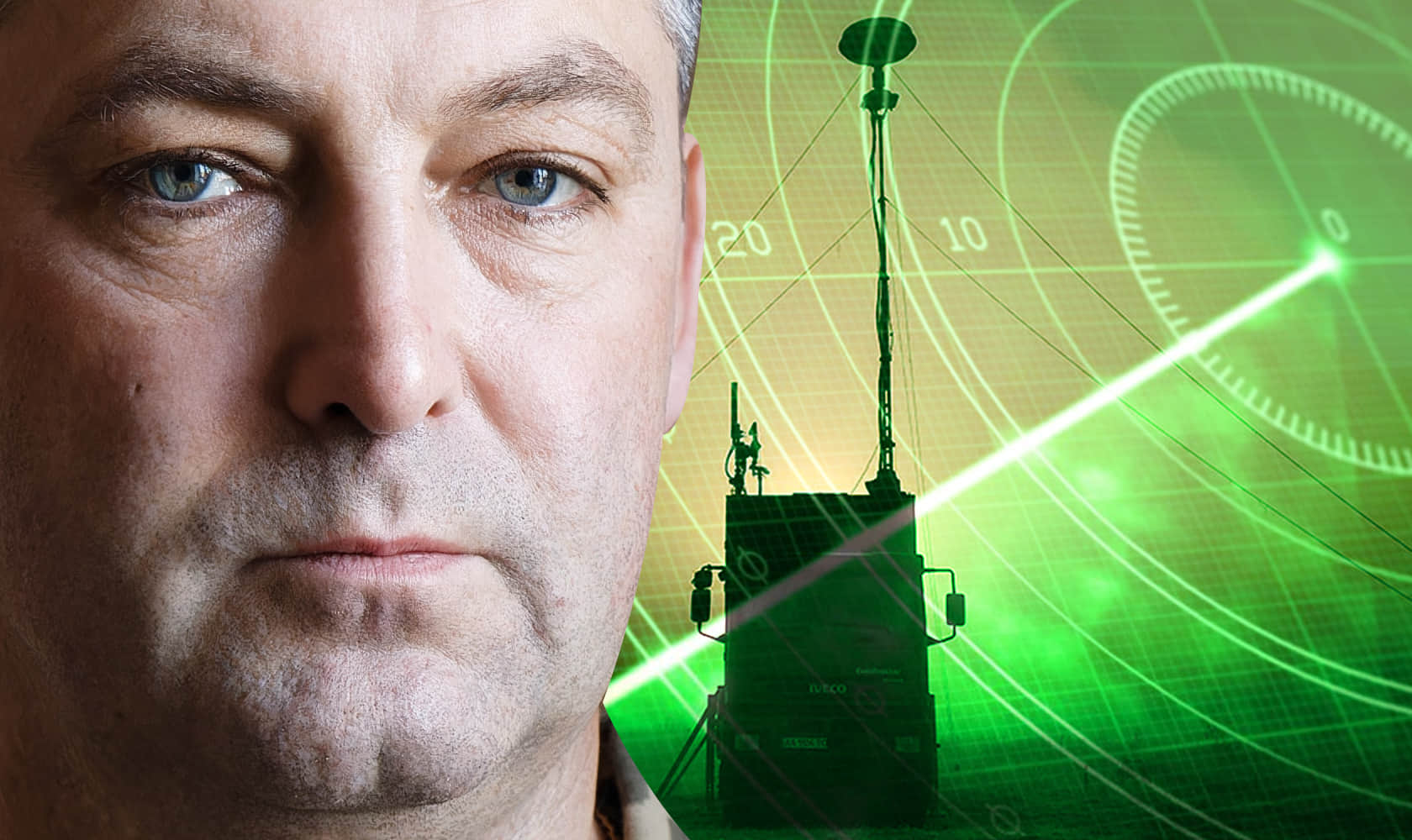
"Thank God I did not serve in the Soviet army…" Valerii Zaluzhnyi, Commander-in-Chief of the Armed Forces of Ukraine, said in one of his interviews.
48-year-old Colonel Ivan Pavlenko is an example of how a generation of Ukrainian army commanders unfamiliar with Sovietism are now getting top positions.
Carl von Clausewitz's treatise On War is next to Henry Kissinger's Diplomacy on the bookshelf in Pavlenko’s office. There is also the Princeton collection Makers of Modern Strategy from Machiavelli to the Nuclear Age alongside American general Colin Powell's autobiography, My American Journey.
Ivan Pavlenko was born in Hlukhiv in the north of Ukraine.
"The orcs [a term often used to refer to Russian soldiers, alluding to the monsters in the Lord of the Rings - ed.] are nearby. That’s probably why I always felt danger on a genetic level," Pavlenko says about himself.
Perhaps this determined his choice of profession – military school, air defence academy in Kharkiv, service in the electronic warfare (EW) unit of the military. He spent a lot of time in the ATO zone in eastern Ukraine in 2014–2015. [The ATO or Anti-Terrorist Operation is a term used from 2014 to 2018 by the media, the government of Ukraine and the OSCE to identify combat actions in parts of Donetsk and Luhansk oblasts against Russian military forces and pro-Russian separatists – ed.]. Pavlenko then went to study in the United States, where he received a Master's degree. He is currently Head of the Main Directorate of Electronic Security and Cybersecurity of the General Staff of the Armed Forces of Ukraine.
Ivan Pavlenko was awarded the Order of Bohdan Khmelnytskyi in April 2022. Asked why, he answers: "Many things about electronic cyberwarfare will become known later, or maybe not."
Ukraine's Defence Intelligence officers are often called the fighters on the invisible front.
However, there is another front that is literally invisible to the human eye. What is happening there does not look as spectacular as the burning Crimean (Kerch) Bridge, the sinking of the Moskva cruiser or the attack of Ukrainian drones on the Moscow City business centre. Yet none of the above would have been possible without the work of the forces of electronic warfare on land, in the sea and in the sky.
To leave the enemy without communication, to down an enemy UAV, to conduct reconnaissance and send the coordinates of the targets to the commanders "in the field", to protect frontline aviation from the enemy's anti-aircraft missile systems and the ground targets in the rear from missile strikes are only some of the tasks of electronic warfare in modern wars.
On the eve of the EW force’s professional holiday – Electronic Warfare Forces Day – Colonel Ivan Pavlenko told Ukrainska Pravda about how electronic warfare has changed modern warfare, about the strengths and weaknesses of the Russian Armed Forces, why the Russians did not succeed in destroying the Ukrainian air defence system, internet or mobile communications during the first days of the full-scale war, as well as how the Russians tried twice to hack his smartphone.
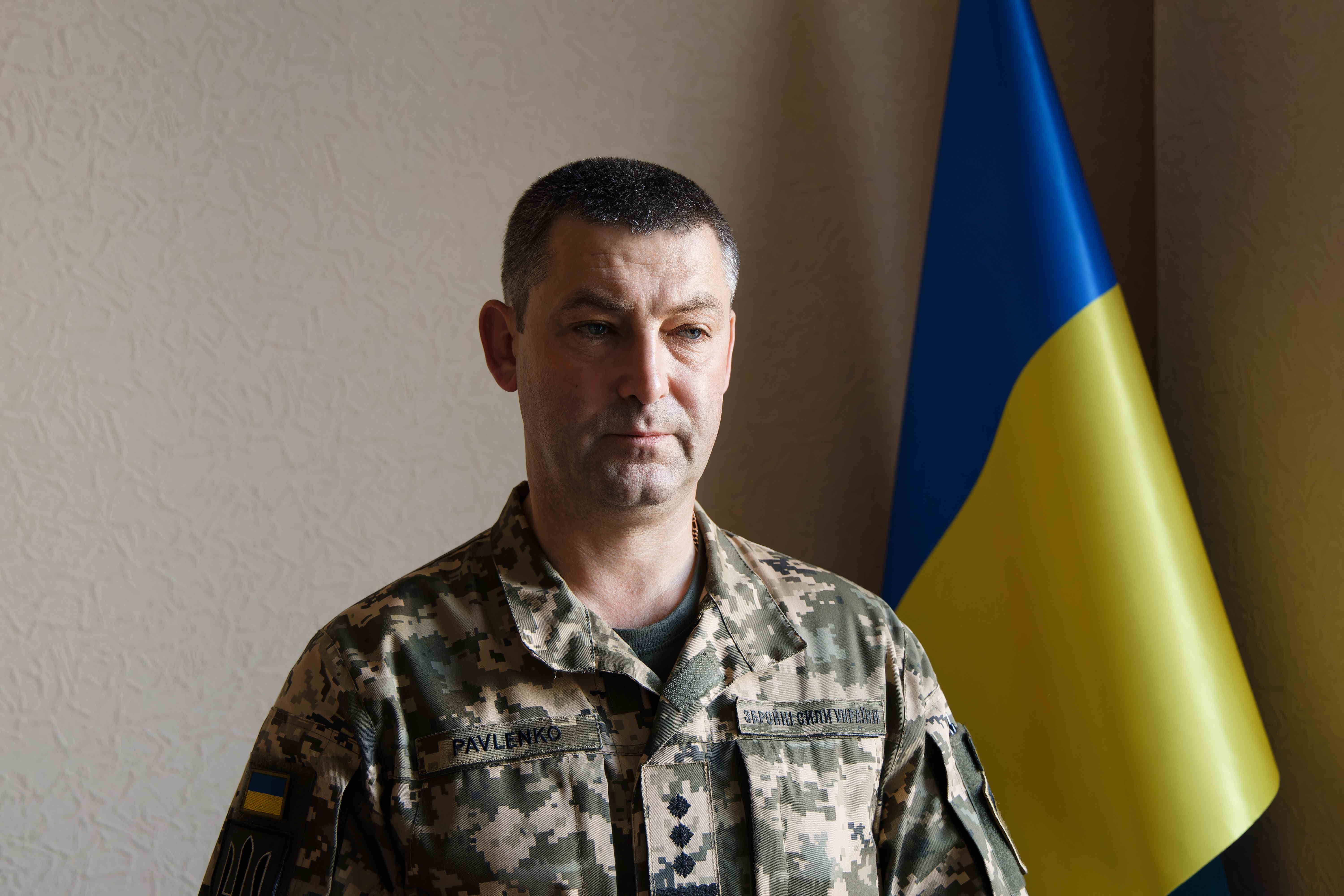
"If you can't explain it to a six-year-old, you don't understand it yourself," Albert Einstein said. If a child asked you what EW is, what would you say? The tank driver drives a tank and shoots. Air defence downs missiles. What do EW experts do?
The question is specific enough to explain to a child because, in fact, electronic warfare is the very peak of technology.
To put it simply, we are the ones who prevent that Russian tank driver from driving a tank and shooting. First, from the tank’s radio emissions, we find where it is and limit its communications and ability to adjust fire. Of course, once we have located the enemy's equipment, we inform our artillery.
The second main task is to jam everything that uses the electromagnetic spectrum: radar, radio transmitters, and means of controlling drones of all types. Cruise missiles are also our business, as are satellite communication. That is, everything within the electromagnetic spectrum belongs to the field of electronic warfare.
Today, we can add cyberspace to these. Because most radio electronics now have software. This offers a means of penetration, hacking and interception of data.
Well, probably not easy enough for a six-year-old child, but at least I tried to explain more or less simply.
Well, give us a specific episode in the modern war where EW worked very well.
Sometime this spring, FPV drones appeared at the front. Today, we are being sent pictures of 3-4 enemy drones hanging around our tank. They simply lose control and fall. And we keep our crew safe. This is the result of the work of electronic warfare.
But scaling up in this area is an issue. First of all, we need to find trained operators quickly, produce these devices in large quantities and deliver them to the troops.
Secondly, as recently as 2022, most foreign experts had no idea of the scale of drone use in modern warfare. The understanding of the situation amounted to: Afghanistan, a base, and a small quadcopter in the distance. And that it had to be detected and suppressed.
If we take the territory stretching from Zaporizhzhia to Lyman, in some areas of the contact line we can now record 250–300 drones in the air at the same time.
Enemy [drones]?
Many different ones. The paradigm of war has changed. In the past, we believed that the main way to conduct a battle was to destroy enemy forces by fire. We still think this is the case. But the methods for increasing the effectiveness of this task, identifying the enemy and aiming weapons have completely changed. New technologies have brought about these changes.
First of all, there are the drones. These are relatively inexpensive, compared to the cost of a tank, for example, or even a high-tech drone.
Secondly, the mass production and functionality of drones is really impressive. Moreover, the task of increasing the effectiveness of electronic warfare has risen proportionately, because all drones need to be countered. Very often, there are situations when only electronic devices can perform this task. No fire system can shoot down a swarm of FPV drones.
There are no restrictions whatsoever on the numbers that can be targetted by electronic warfare. Electromagnetic waves affect 1 and 221 drones at the same time. However, it is essential to build a system involving scientists, production facilities, and trained specialists for this tool to be effective.
If it was once possible to use specialists right after they were trained, now in some cases we need to look for people with previous experience with radio electronics in the past. We have to find radio engineers who already have experience and train them.
Electronic warfare is a continuous competition between measures of radio-electronic protection, on the one hand, and radio-electronic suppression, on the other. For example, the Russians have come up with a system of protection against radio jamming...
What is it called?
Kometa ["Comet"]. But we already have the capability of counteracting this system.
But tomorrow they will invent something else, and we will design other electronic warfare systems that will effectively counter that. It is a continuous process.
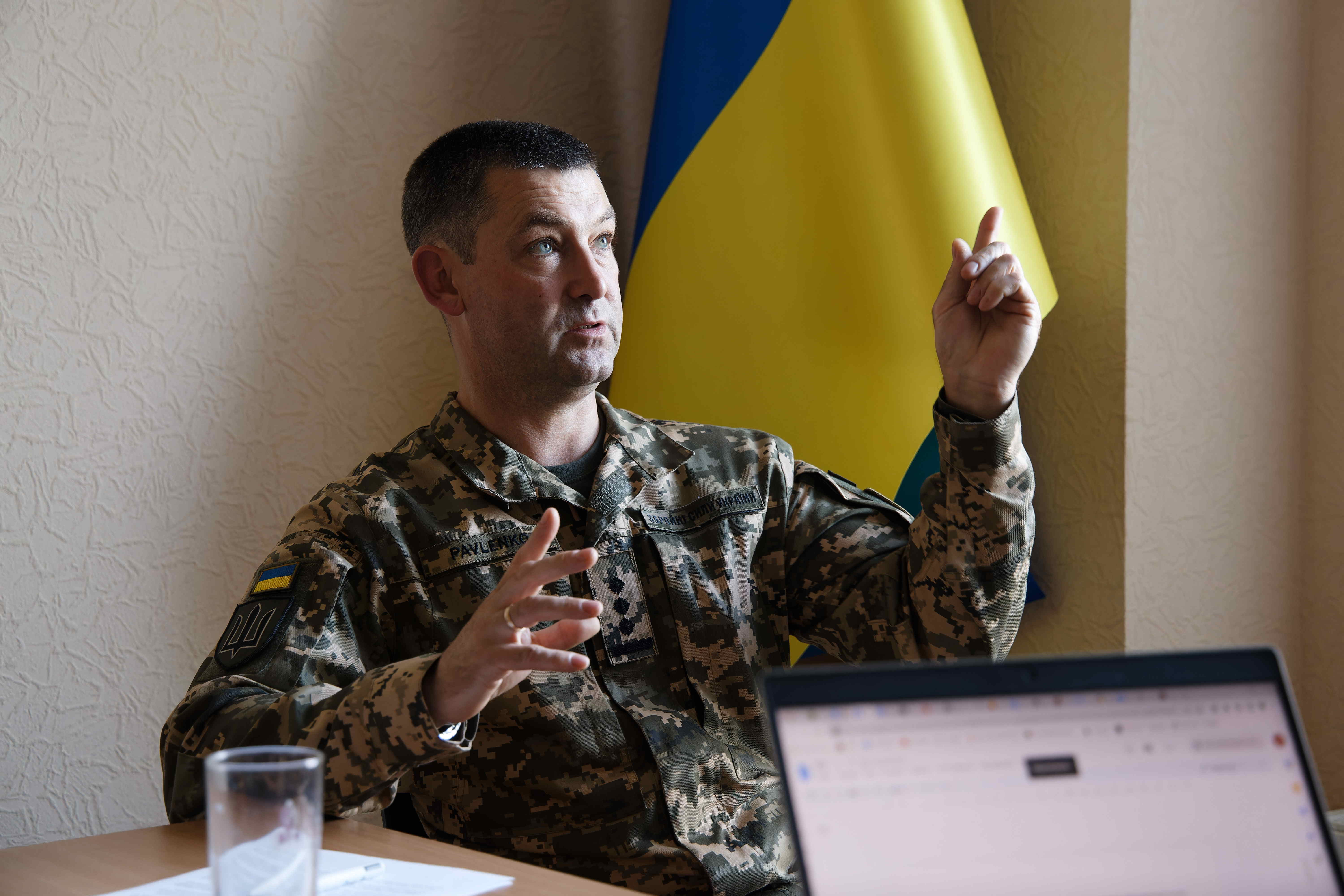
"The Russians have been preparing for war for a long time and systematically"
Today there is a lot of talk in the army about the fact that even before the start of the war, the Russians had been intent on killing our army structure for decades – they took away our old tanks so that we would not repair them ourselves; they took away our missiles and are now launching them at us. Have you noticed that they also influenced the training of Ukrainian radio engineers and enticed Ukrainian specialists away?
It would not be true to say that the war broke out suddenly in 2014 – nothing happened suddenly. The Russians have been preparing for war for a long time and systematically.
Every technology Ukraine has that is interesting specifically from the point of view of radio electronics was controlled by the Russians. They tried to import these technologies from Ukraine, often together with the trained specialists. Many of the latter had left Ukraine by 2014.
There is a company in Ukraine that produces satellite navigation equipment; many of its staff have left. At the same time, there was no expectation that there would be a war. These employees were simply offered much better conditions in Russia. Families, work, contracts – everything was guaranteed. And these people just left, and then the war started.
What are the strengths and weaknesses of the Russian electronic warfare forces?
We must understand that our enemy is very serious about this. They understood the role of EW after the war in Georgia in 2008, when they lost their planes, which lost communication, by the way, thanks to the Ukrainian EW system.
They drew their conclusions. According to my information, they spent about US$2 billion on EW from 2008 to 2012.
They have a state programme for the development of EW. They have electronic warfare troops. Before the war, there were about 18,000 people, in five brigades consisting of about 30-40 military units. Russia has four separate specialised scientific and educational organisations, namely, military schools and their research centres.
What else can I say? Fortunately, corruption is a wonderful thing that destroyed the very great potential of the Russian electronic security system. They created a model, stole money, moulded something, demonstrated it and… off you go.
For example, they said that the Russian Khibiny system, a missile defence system mounted on aircraft – works flawlessly and that Russian planes are invincible. Later, it turned out that there were suddenly Khibiny bits from burned up Russian planes lying on the ground.
And what is our production situation?
Our situation is a little different. Firstly, we have a very large amount of foreign equipment. Secondly, since the beginning of the [full-scale – ed.] war, the mindset has changed. Attitudes towards electronic warfare have changed.
The whole world now knows about the Bukovel-AD EW system. It is produced by a private company, and there is no corruption there. It is simply business. The better the system, the more it will be bought.

It is more difficult to work with state-owned companies. But I would not really criticise the defence industry when it comes to electronic warfare. Yes, we could do better, but we are doing the work. Of course, we are not producing as much as we need, but we have the means.
There are peculiarities with documentation and approval for operation, because nothing can be spent from the state budget just like that. This is a long process. For instance, we faced a problem recently: we made a good product, everything was great, and we started sending it to the troops for testing. They immediately said: "Well, it's not suitable at all, because the antenna is high and gets torn off an armoured combat vehicle right away by branches." We have to redesign it. And a different antenna takes quite a bit of work. This is just an example.
Can we speak of quantitative or qualitative parity between Ukrainian and Russian electronic warfare assets today?
I will tell you this: in terms of numbers, no, we cannot. The enemy's numbers are high, and a large number of people are crazy enough to work for the Russian military-industrial complex. Unfortunately, they have a lot of assets.
But in terms of quality, I can definitely say that we have more technologically advanced equipment. At the level of the ground forces, our equipment is quite advanced and in most cases better. Our electronic warfare system is developing very fast. Unfortunately, I can't go into detail here, but there is progress.
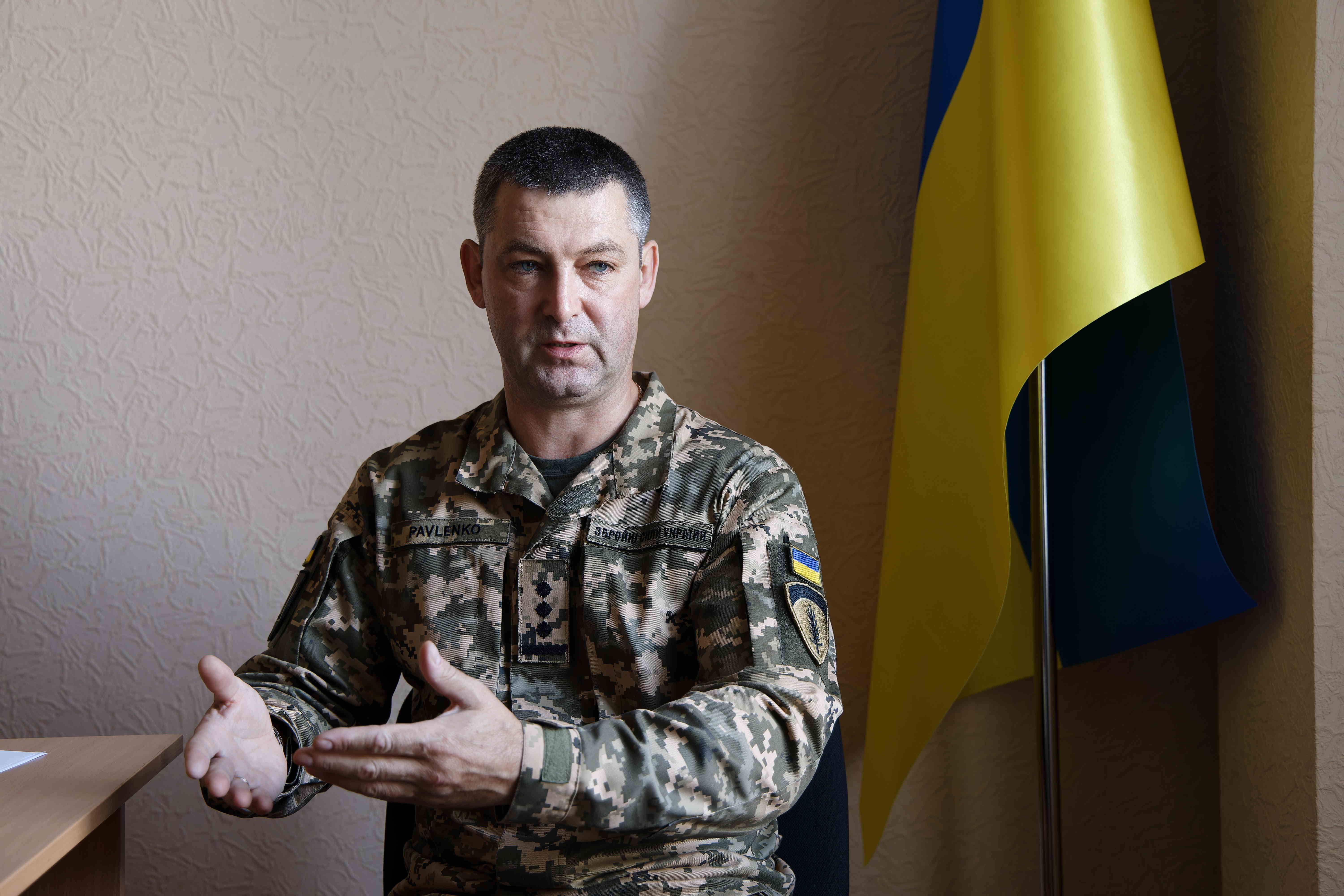
"The main confirmation that electronic warfare is successful comes when the enemy tunes to other frequencies"
Unlike enemy fire, electronic warfare cannot be seen with the naked eye. How can one assess its effectiveness?
Let's take the example of the Russian Orlan-10 [reconnaissance drone -ed.].
It can be suppressed by electronic warfare, but it will still fly and perform its tasks. The Orlan’s flight time is 18 hours. That's why people often comment: what was electronic warfare doing? What is its effect? The Orlan flies back and forth unimpeded. But I'll explain the difference.
In order to provide a target for artillery strikes, the Orlan must see the area of interest during flight, focus on that area, take pictures, then transmit information about what it has discovered, and then adjust the first artillery strike. This requires continuous control of the Orlan. And because of our method of radio jamming, it fails to maintain such control. That is, it continues to fly, it will not stop, it will not crash, it will not explode in the air. It will fly and wait until the effects of electronic warfare cease.
The same is true if we detect enemy communications and carry out radio jamming. We conduct additional reconnaissance, but it is often difficult to know whether or not they have a connection.
The main confirmation that electronic warfare has been successful is that the enemy tunes to other frequencies. By the way, in the early days of the [full-scale] war, when the "orcs" were flying around Kyiv, we used radio waves to jam the enemy’s air control. The guys then recorded a funeral march that was later made to seem like it was broadcast by the Russians. I'm telling you, they changed frequencies instantly. A change every 10 seconds. The effect was immediate.
Another very important thing is that the effectiveness of electronic warfare is always measured in percentages. Because it works entirely with waves - you can't touch it. For example, let's take the communication network of a tank battalion. There are 10 radio lines, let's say. If we jammed all the radio lines, then the communication would be referred to as ‘broken’, making it 100%. If we jammed 70% of them, it would be called ‘breached’. If 50% are jammed, it's ‘hampered’. This is how the effectiveness of electronic warfare is calculated as regards communications.
Do you remember last year's story about the Ukrainian Bayraktar flying over Kyiv, which was being shot at with all kinds of weapons? Could it have been suppressed by electronic warfare?
It was a technical malfunction. This happens with any system. I will answer this way: any system can be suppressed by electronic warfare, meaning that there are no systems that cannot be suppressed. But the details of this story are beyond the scope of our conversation.
The classic doctrine of contemporary warfare is to create strong interference or even disable the opposing force’s electronic warfare systems before the first large-scale attack.
Yes, the first step is to suppress air defence systems.
To what extent did the Russians succeed in this in the first days of the full-scale war?
They definitely used this method. Sometimes it was effective, but in most cases, it was not.
The first reason is that while they have a lot of propaganda, they don’t have many super-efficient systems. For example, the Krasukha [mobile ground-based system - ed.] with those big "ears" that was on the covers of magazines all over the world... Yes, there were some. One was destroyed in the northern part of Kyiv Oblast. Well, at least the hardware trailer was destroyed.
Secondly, great honour and praise are due to our air defence personnel. They are very well trained; they constantly changed positions and were able to work in conditions of radio interference.
So I'll tell you this: somewhere in the third or fourth month, from my point of view, or even faster, after a couple of months, the Russians were, so to speak, exhausted.
Do you mean the absolute advantage of their electronic warfare has disappeared?
But there was none. Yes, they had some impact. But they did not pose, let's say, a critical threat to our air defence systems.
Can you recollect a specific episode of the war where our electronic warfare equipment played a decisive role?
In the first days of the full-scale war, the use of electronic warfare, in my opinion, prevented Russian helicopters from landing in the area of Hostomel. They left the airport several times, returned, went back to the Kyiv Reservoir, and came back again. There may have been other reasons for this, but this was a sign of the impact of electronic warfare.
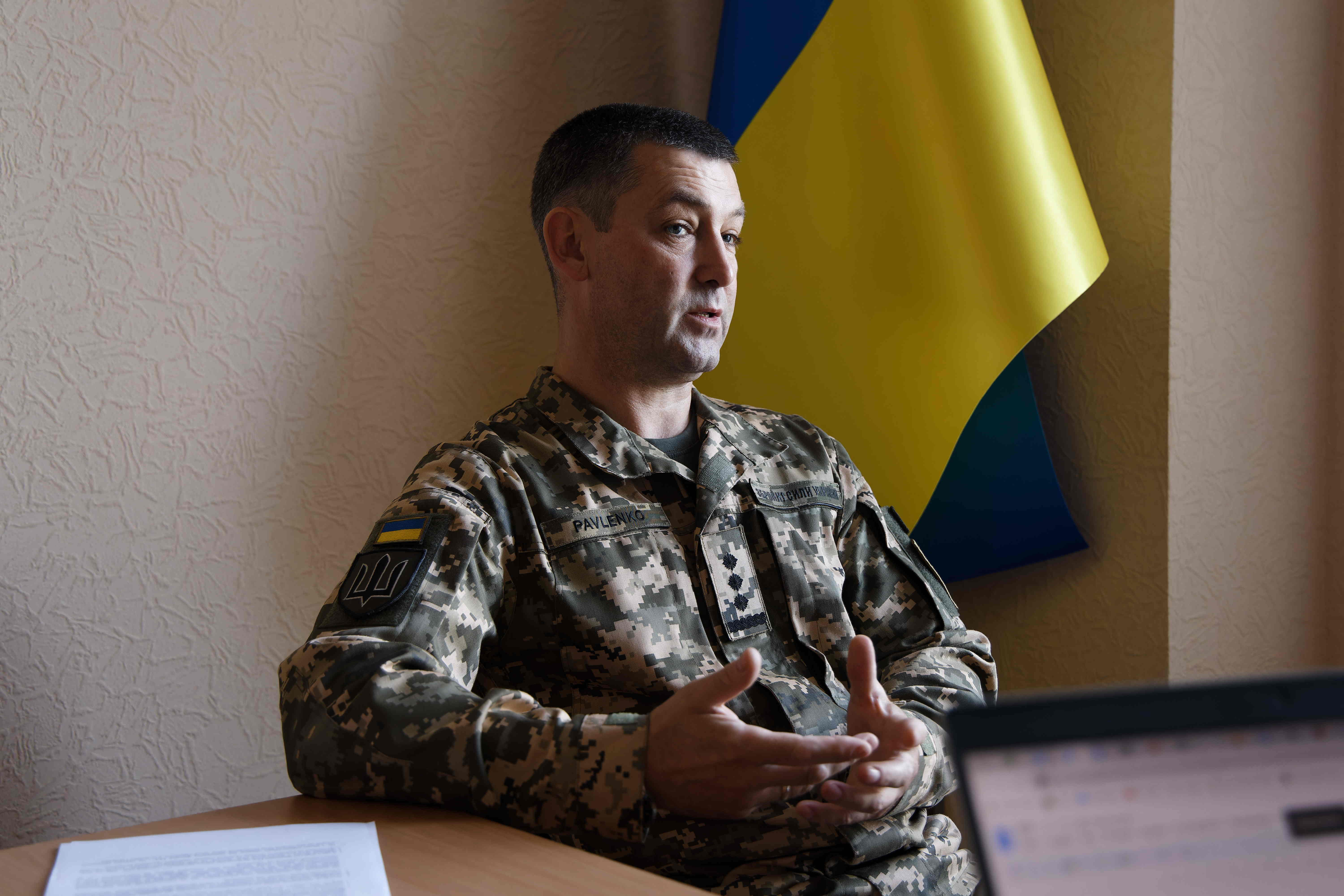
"Between 80 and 120 Russian electronic warfare systems have been destroyed since 24 February 2022"
Our military is constantly saying that Russian electronic warfare is currently a big obstacle to the offensive in the south. What Russian electronic warfare systems are causing us the most trouble?
Unfortunately, they prevail in terms of quantity. The number of anti-drone weapons the Russians have is simply off the charts. In many areas, our drone operators have already forgotten what it means to fly unimpeded.
As for technology... First, there are sanctions in place against Russia. Therefore a great many Chinese components and low-quality equipment are used in the field of electronic warfare and radio jamming systems.
At the same time, I have to admit that the Pole-21 is a fairly advanced technological system. It shuts down navigation entirely. This large, powerful system usually operates over a long distance, but at a certain altitude. And everything below that, dozens of metres, is simply not covered. So our people are learning, looking and searching. I can tell you that our pilots are very resourceful, and this helps them.
The Zhitel [electronic warfare - ed.] system is also quite technologically advanced, and it succeeds due to its enormous power. But let's not forget how many dozens of these systems we have already destroyed.
Are there any statistics on how many Russian electronic warfare systems were destroyed during the full-scale war?
There are some, but I'm not ready to give you a figure right now. The total number since 24 February 2022 will be between 80 and 120. It depends on what you count. If we count only large systems, it's 60-70.

One can only imagine what the first days of the Russian invasion of Ukraine would have looked like if mobile communications and the Internet had been down. How was it possible to avoid this happening?
We have a lot of different types of data transmission tools and channels. And there is no overregulation, which is an advantage. Although the Muscovites have all their systems under the control of the FSB, there are not so many of them, they are controlled and, accordingly, the number of data transmission channels is limited and predictable.
In Ukraine, due to openness and deregulation in this area, there are many different providers, but it is all one network. If a large cable is cut in one place, other channels will still appear. This is because IP traffic is built in such a way that it allows self-organisation. I think that's the main reason why we managed to keep the connection working in the early days of the invasion.
And again, in those days, no one negotiated or asked anyone, they just did it. The operators did not quarrel with each other, did not seek their personal interest, but silently ensured the functioning of the system, without asking how much it costs, who is better or worse. This is a very big thing, the unity of the nation.
During combat actions, many Ukrainians were left without any means of communication and felt like "blind kittens", which caused panic. Do you have any advice on what to do if you lose the means to get information about what is really happening?
The first option is ordinary radios. We still have state broadcasting on medium and short waves. Local authorities should inform the population about the frequencies used for such broadcasts.
Everybody knows about the Western armaments we receive: HIMARS, Leopards and Patriots that our allies provide us with. But the Western radio–electronic warfare systems are not talked about that much. What is most lacking today? Maybe, powerful mobile complexes or trench weapons, such as anti-drone guns?
Everything is lacking. You know, we cannot say that there is anything that is not needed anymore. Everything is needed.
As for specifics, I’d say radio-electronic warfare systems have always been a sensitive subject. You can read all sorts of things on the Internet, but in reality about 5 percent of what they write about is actually effective. The rest is mostly advertising.
Of course, our Western partners are helping us with high-quality systems. They are also learning from us while doing it. They are learning during the Third World War, frankly speaking. This is not a war between Russians and Ukrainians, this is a war between two civilisations. The mentality of people who want to be free is fighting with the mentality of the slaves. The empire is fighting with the free world.
So there are no surprises. Again, we realise that the "orcs" are a big and very rich country, and they were able to procure the best and most advanced resources, despite corruption. Once more, they are paying very close attention to their radio-electronic forces, just like China, by the way.
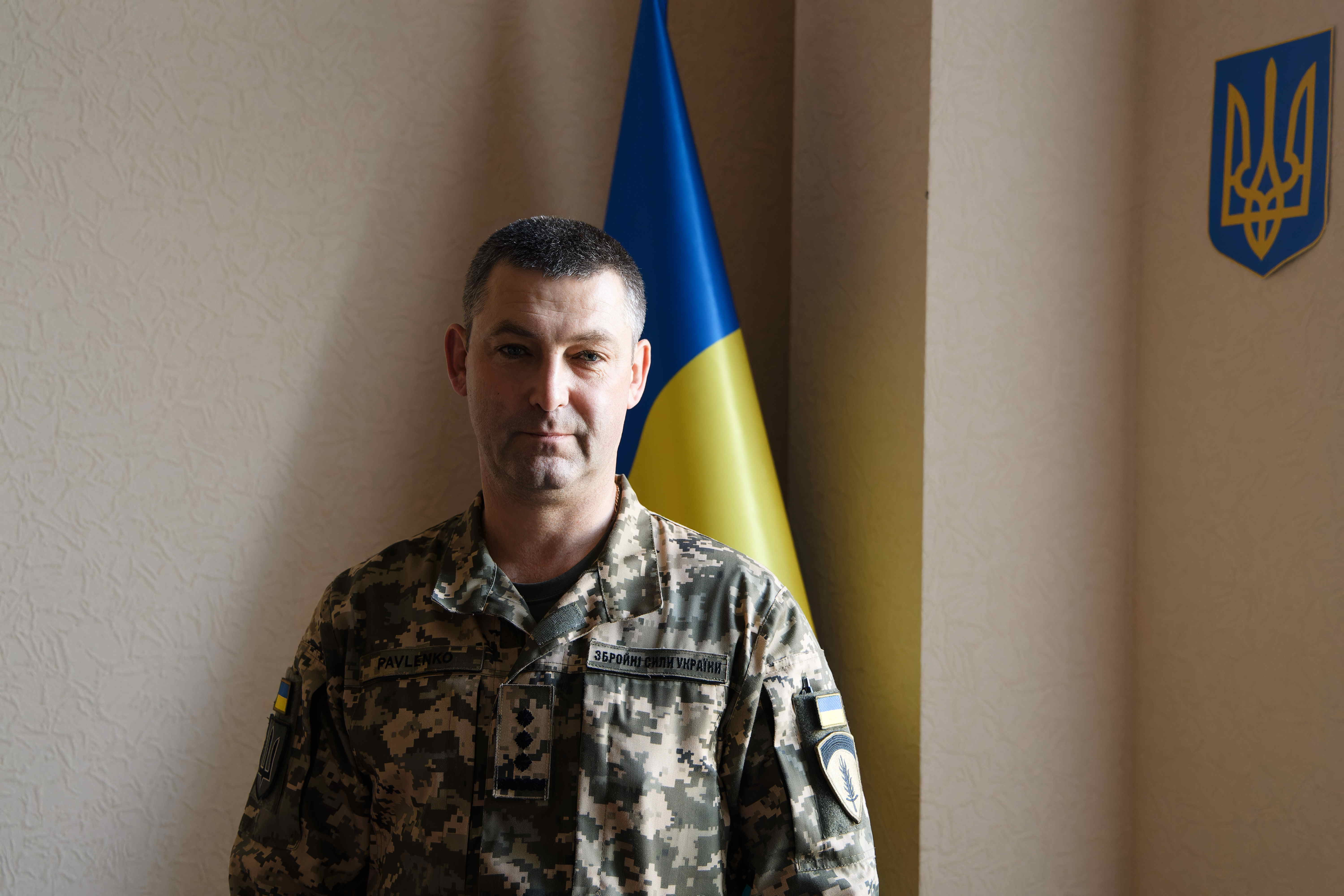
"Telegram is not physically on my phone"
When journalists work in combat zones close to "ground zero", the military almost always demands that they switch their phones to airplane mode. How important is that?
Yes, it is very topical and important. For instance, the Russians have the Leer-3 system, which creates a fake base station that can detect mobile phones and send messages within a given territory.
It cannot intercept your phone conversations but it can determine the location of the phone. A big threat is the concentration of phones. Of course, no other phones than those of the military can be concentrated in combat action zones. So these definitely belong to the military. Therefore, it is certainly necessary to turn the phone off so as not to be tracked. By the way, it was because of the use of mobile phones in combat zones that we suffered big losses in 2014. It is a serious threat.
Have the Russians attempted to get remote access to your smartphone since 2014?
At least twice. Once near the settlement of Avdiivka and once again near Krasnohorivka, as far as I remember.
This is how it happened. My phone was working, then suddenly its battery percentage dropped to zero, I charged it, but it showed 0% battery again. I turned it off for some time, and when I turned it on again, the battery was 100% charged.
I will not disclose the details but a sudden drop of battery percentage is a sign something is wrong with the phone. It forced me to restart the phone. When you restart it, an application which allows you to access all your files appears on the phone.
I had to change phones twice because no expert can give a 100% guarantee that the phone is clean. The most reliable method is to just get rid of your IMEI [International Mobile Equipment Identity – ed.] and phone number.
If you want to be sure that your phone is yours only, first of all, never accept a phone given as a gift. Go to the store or, even better, send someone close to you to buy the first one they see, that is not meant specifically for you. Just like spies do in movies: don’t sit in the first taxi.
That's it. Secondly, let me be clear: there must be nothing but a phone book in your phone. Telegram does not physically exist on my phone. If we communicate via messengers, we use Signal, maybe, WhatsApp. In any case the information exchanged there must be fragmentary so that it would be impossible to understand it if you don’t know the context. After all, serious professional matters are simply not discussed by phone. That’s it.
Many members of the top leadership of Ukraine’s Armed Forces have revealed that at the beginning of the full-scale Russian invasion, they received messages from Russians with suggestions that they switch sides. Did you also receive such messages?
I’ll be honest with you: I did not. I don’t know why. Such a pity (smiles). But, of course, many of my acquaintances did.
And how did they react?
There was no reaction. I would say that the first few days were tough for everyone, but I did not see scared or hysterical people. Everyone was united. It was way easier to work.
Why?
During the first two months, it was possible to solve any issue in a day. Now it is harder…
I don’t know, perhaps we should follow the example of, say, Israel, because the "orcs" are not going anywhere, sadly. Historically we have always been a buffer between Moscow and Europe, and we are even more so now.
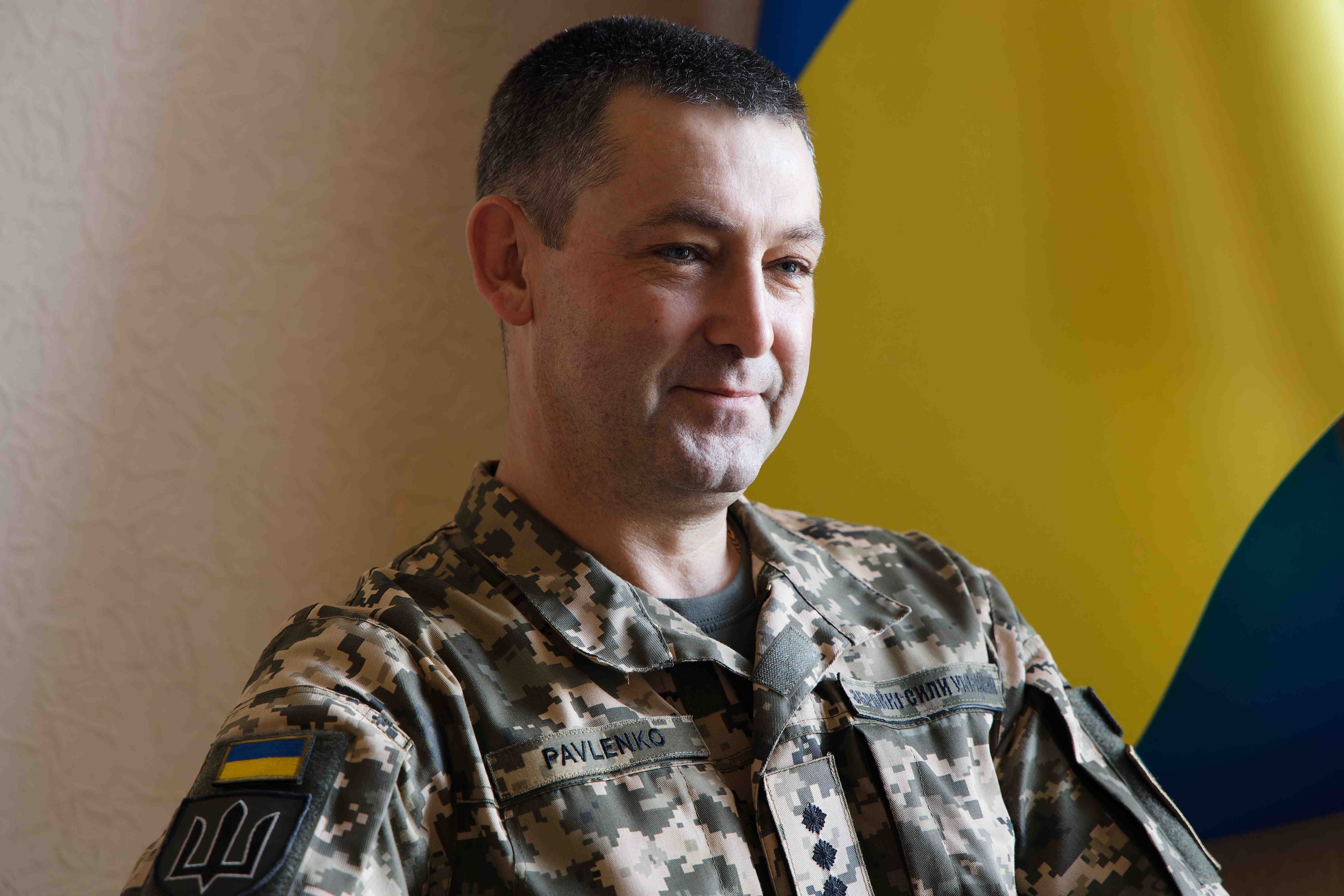
"We must counteract everything that flies, crawls, runs, swims"
This war is often called the war of drones. And almost never the war of anti-drone systems. Does it offend you, as an electronic warfare expert?
–The war of drones is our current reality. Drones are "number one" in contemporary warfare. It is followed by a "number two", which affects these devices.
Cyberwarfare in the electromagnetic spectrum is the future. It is not even about the drones themselves, but about robotic systems.
Today, we are not only talking about something that flies. We also say that something that walks, crawls, runs or swims will appear tomorrow. And we must counteract all of it if these are the opponent’s weapons, and we must protect it all if they are our weapons. And it is only possible to do that with the help of electronic warfare. The answer is that simple. There are two components: we must protect our robots and fight against the robots of others.
People are not usually well informed about the specifics. Could you explain roughly where electronic warfare ends and cyberwarfare begins?
Let’s keep it simple and consider a few examples. We will classify them all according to their effects. If you use electromagnetic waves, then it is radio-electronic warfare. If wires are used, then it is cyberwarfare.
But your phone, for instance, uses the electromagnetic spectrum to function. To control it requires a radio-electronic device that can make it susceptible to cyberintelligence, obtain the information needed and then transmit harmful content. It is a simplified example.
If we go into greater detail, there are more advanced systems, such as modern aviation radar. It always has software. Therefore, it is essential to identify the frequencies of the radar and its weaknesses, conduct probes and then create a software product that will impact this system and transmit the software to the radar via radio-electronic warfare.
And this is the midpoint, which is called cyberwarfare in the electromagnetic spectrum.
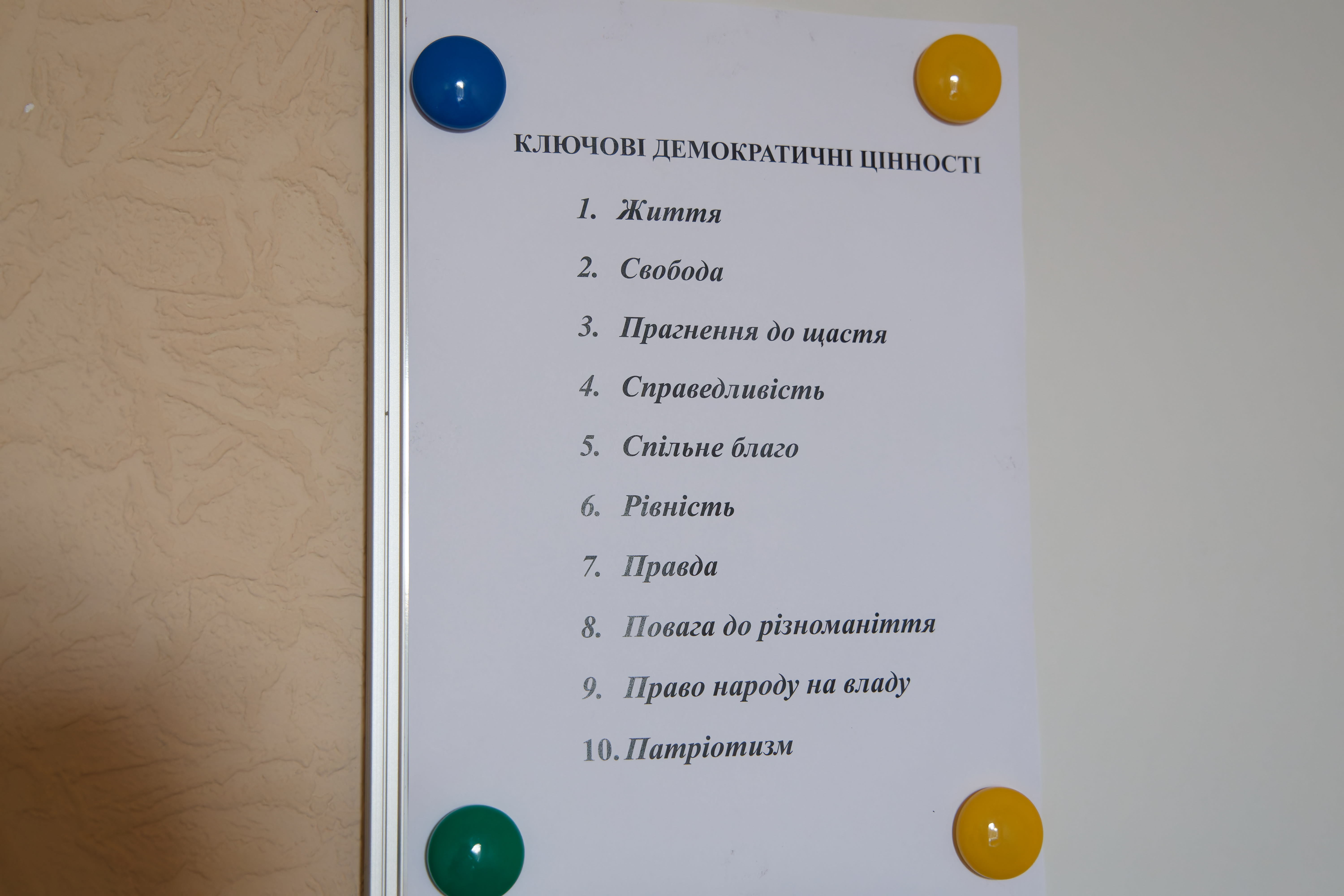
Do we have the capacity and the specialists needed to wage cyberwarfare?
Generally speaking, the Armed Forces of Ukraine conduct operations that no one will ever speak about and that are very expensive. Likewise, software coders are not cheap either.
But, first of all, there is no other way, this important tool must be developed. Secondly, people need to be trained for this. IT specialists can be hired –that is the first way. The second way is to train an IT specialist.
We can follow Israel’s example: an IT specialist would study while under contract, serve in the army, and then be in the reserves. I’ll say it again, there are ways to do this. Yes, it is expensive, but these are not sky-high unaffordable sums.
We know for sure that the war will be over, we will win. But the war in cyberspace will never end. Moreover, after their defeat on land, the "orcs" will focus even more on the cyber domain. So we should start preparing for that and increase our capacities right now.
Mykhailo Kryhel, Yevhen Buderatskyi, photo – Dmytro Larin, Ukrainska Pravda
Translation: Sofiia Kohut, Myroslava Zavadska and Polina Kyryllova
Editing: Monica Sandor